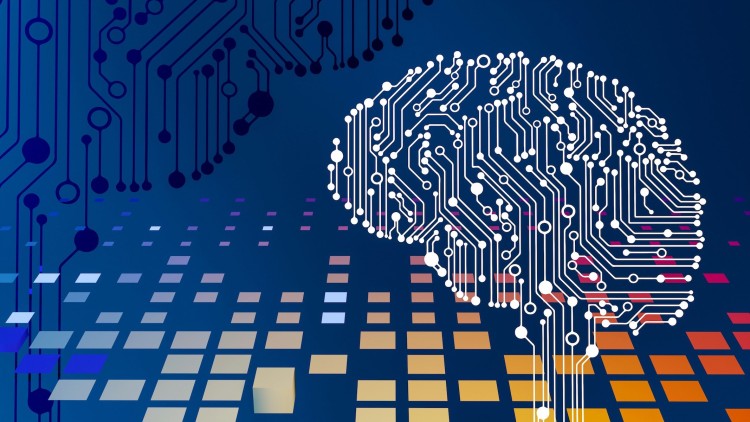
Striking the balance between automation and human expertise in business and education

Artificial intelligence (AI) has revolutionized industries, enhancing efficiency, streamlining processes and enabling businesses to harness vast amounts of data. However, as AI continues to advance, questions about its limitations, ethical implications and role in decision-making become increasingly important.
In this discussion, Timothy Yeung, Instructor of Product Management at UBC Sauder’s Continuing Business Studies and Director of Product Management at Hootsuite and Jonathan Carrigan, Associate at UBC Sauder Executive Education share their insights on the evolving relationship between AI and human expertise, offering strategies for leveraging AI responsibly while preserving critical thinking and creativity.
The limits of generative AI
While AI excels at automation and pattern recognition, its limitations become evident when context, judgment, and ethical considerations are required. Generative AI does not yet “think” in the way humans do—it predicts based on learned patterns. As a result, AI should be seen as a tool to enhance, rather than replace, human decision-making.
"AI can significantly scale the speed of decision-making, but ultimately, humans must make the high-stakes calls," Yeung notes. "The future belongs to those who know how to use AI while keeping creativity and critical thinking at the core of what they do."
The common AI misconception
Despite its growing presence, AI is often misunderstood. One common misconception is that AI possesses human-like intelligence. "People assume AI is ‘thinking’ when in reality, it’s generating predictions based on historical data," Yeung explains.
Another misconception is that AI is an omnipotent force capable of making flawless decisions.
"AI is only as powerful as the data it’s trained on. Without diverse models and human oversight, AI can perpetuate biases or make inaccurate recommendations. A human-in-the-loop approach ensures fairness, transparency and accountability,” he adds.
Ensuring AI remains a partner, not a replacement
AI’s role should be to support human judgment, particularly in high-stakes decision-making. This requires:
- Human oversight: AI should be integrated into workflows with clearly defined human touchpoints for validation and critical thinking.
- Transparency and explainability: AI-driven insights must be explainable, ensuring users understand how decisions are made.
- Ethical AI practices: Organizations should prioritize responsible AI deployment, preventing bias and ensuring fairness in decision-making.
- AI literacy: Understanding how AI works, its limitations, and ethical implications.
- Critical thinking and problem-solving: The ability to interpret AI-generated insights and make informed decisions.
- Creativity and adaptability: AI can assist with data processing, but human ingenuity remains irreplaceable.

AI and product management: enhancing, (not automating) decision-making
For Yeung, integrating AI into products means ensuring it supports human creativity rather than replacing it.
"AI helps automate repetitive tasks, allowing users to focus on strategic and creative thinking," they explain. "For example, tools like Hootsuite’s OwlyWriter AI assist social media marketers in generating content quickly, but the final creative touch must come from humans."
In AI governance, transparency and ethical deployment are key concerns.
"AI models are only as good as their training data. We’ve seen cases where biased data led to flawed AI-driven hiring decisions. To mitigate these risks, businesses must implement AI governance frameworks that prioritize fairness and accountability."
Striking the right balance between AI and critical thinking
Organizations must strike a balance between leveraging AI’s efficiency and maintaining strong human judgment. The onus falls on organizations to implement AI governance frameworks to ensure AI is used responsibly, with clear guidelines and oversight for users.
"Two years ago, many global organizations didn’t even have AI policies in place," says Yeung. "Having a dedicated team of AI experts to provide oversight, establish clear AI governance and define ethical guidelines is critical. This minimizes risks and ensures AI enhances decision-making rather than replacing it."
Furthermore, AI should be used as a decision-support tool rather than a decision-maker. Businesses that invest in educating their employees about AI’s capabilities and limitations will gain a competitive edge.
"AI is not here to replace us—it’s here to make us better at what we do best."

AI’s Impact on marketing and creativity
Carrigan, a marketing and digital strategy expert, sees AI as a collaborator rather than a replacement.
"AI is becoming fully integrated into our workflows, but the key is understanding that humans are still behind the tool," he explains. "We define the task, set the goals, and apply critical thinking—AI simply assists in execution."
In marketing, AI can personalize content and analyze trends, but authenticity and context remains a human-driven factor.
"AI can suggest optimal messaging, but professionals must ensure brand voice and emotional resonance are maintained."
AI in education: fostering critical thinking
As an educator, Carrigan encourages students to engage with AI critically.
"AI can personalize learning and provide instant feedback, but educators still play a vital role in guiding students through complex problem-solving processes. The future of education lies in a hybrid model where AI supports, but does not replace, human instruction."
“Many faculty form certain biases towards AI and forget that AI has gotten much more sophisticated over time. It's been evolving at such a fast pace. As educators, we need to ask ourselves: what does that mean for the subject matter that we are teaching? What do we need to teach students within the context of the subject matter? In addition to literacy, we all need to understand where it's going and how fast its approaching to work backwards and leverage our subject matter expertise to reimagine the art of the possible.”
The experts agree—AI is a powerful tool that enhances decision-making, efficiency, and innovation, but human judgment, creativity, and ethical oversight remain irreplaceable. The organizations, students and professionals who thrive in an AI-driven world will be those who understand how to harness AI while keeping human intelligence at the center of their strategies.